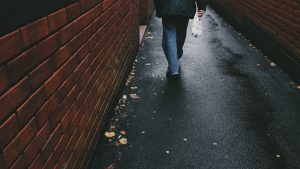 The crime that is antisocial behavior is not marked by some grand event or big scandal that can be curtailed through legal controls. Rather, it is a series of events and misdemeanors that eventually add up to a toxic atmosphere of disorder in the streets of Chicago. Indeed, this is the type of crime that is most likely to be closer to the citizenry because it happens to them on a daily basis. The fact that the crimes, when looked at as individual incidents rather than as a whole, do not meet the gravity and sensationalism that is required to capture the attention of our contemporary 24-hour media cycle means that victims often suffer in silence. They protest, but when they realize that nothing is going to be done about it, they accept antisocial behavior as part of the cost of living in some parts of Chicago.
The crime that is antisocial behavior is not marked by some grand event or big scandal that can be curtailed through legal controls. Rather, it is a series of events and misdemeanors that eventually add up to a toxic atmosphere of disorder in the streets of Chicago. Indeed, this is the type of crime that is most likely to be closer to the citizenry because it happens to them on a daily basis. The fact that the crimes, when looked at as individual incidents rather than as a whole, do not meet the gravity and sensationalism that is required to capture the attention of our contemporary 24-hour media cycle means that victims often suffer in silence. They protest, but when they realize that nothing is going to be done about it, they accept antisocial behavior as part of the cost of living in some parts of Chicago.
From a legal point of view, this is a situation that is no longer sustainable. There is an expectation that the residents of Chicago will be able to enjoy their neighborhoods in peace without being disturbed by criminals. At the same time, the legislation must be written in such a way as not to go overboard. The fight against crime and its causes can seep into hyperbole and grand political gestures that do not deal with the underlying problems. For example, legislating against drunken behavior is not enough when youth are idle due to unemployment. The authorities must take a systemic and holistic approach to resolving these entrenched problems.
Setting up a Reasonable and Workable Regime
 Chicago Criminal Lawyer Blog
Chicago Criminal Lawyer Blog


